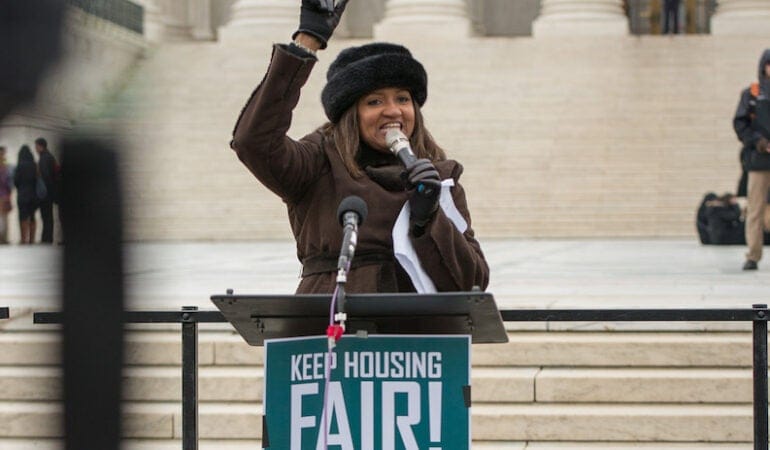
Land Matters Podcast
The Fair Housing Act—passed in 1967, just seven days after the assassination of Dr. Martin Luther King, Jr.—sought to end discrimination in housing in the United States. But as the economic and social turbulence of 2020 has reminded us, the law’s provisions have not been enough to undo decades of policies and procedures that have essentially locked in residential segregation.
So says Lisa Rice, president and CEO of the National Fair Housing Alliance in Washington, DC, the latest guest on Land Matters, the podcast of the Lincoln Institute of Land Policy.
“Communities have got to look at housing opportunities through a lens of race and racial equity,” Rice says. “You’ve got to take a look at what are the barriers that are precluding people from being able to access fair housing opportunities, and look at that very honestly.”
The deck has long been stacked against Black and brown people seeking safe and decent housing, Rice says. When the Civil War ended, a short-lived land redistribution program for formerly enslaved people gave way to local laws and restrictions that made it virtually impossible to own land and a home.
The Great Depression prompted another opportunity to expand homeownership opportunities, with the National Housing Act of 1934, the creation of the Federal Housing Administration, and the new availability of federally backed home financing. But those programs set in motion the color-coding, or redlining, of neighborhoods that continues to this day.
Understanding the long history of discriminatory housing policies in the United States can help us make sense of how housing has become an issue in this election year, Rice says, and is critical to making meaningful and lasting changes.
You can listen to the show and subscribe to Land Matters on Apple Podcasts, Google Play, Spotify, Stitcher, or wherever you listen to podcasts.
Anthony Flint is senior fellow at the Lincoln Institute of Land Policy and a contributing editor of Land Lines.
Photograph Credit: National Fair Housing Coalition.
Related
 President’s Message: Think Land Policy Is Unrelated to Racial Injustice? Think Again.
President’s Message: Think Land Policy Is Unrelated to Racial Injustice? Think Again.
 The Destiny of Density: Affordability, Equity, and the Impacts of an Insidious Virus
The Destiny of Density: Affordability, Equity, and the Impacts of an Insidious Virus
